16 Random Things To Buy That Will Actually Save You Money in the Long Term

Smart shoppers know that comparing prices to find the best deal can pay off. However, buying the cheapest option doesn't always mean you're actually getting the best deal. In fact, it can make financial sense to spend more on some products and services to save money over the years.
Read: 18 Legitimate Games & Apps That Pay Real Money in 2023
Learn: How To Build Your Savings From Scratch
"Sometimes, we might think we're saving money on cheaper items, when in reality, splurging a little on the more expensive competitor would have saved us more over the long run," said Matt Dworetsky, president of Dworetsky Financial in Wall Township, New Jersey. Keep reading to find out when splurging on the pricier option can help save you money over time.
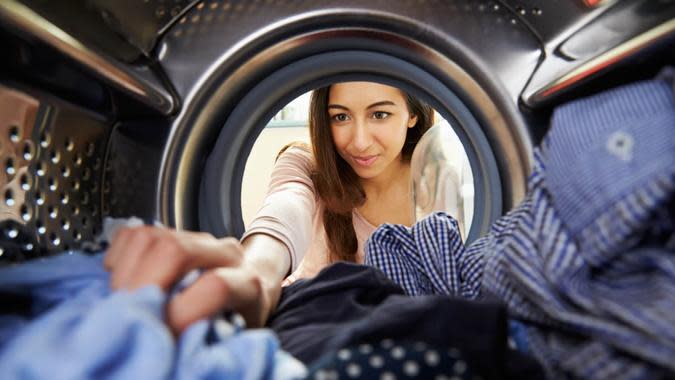
Energy-Efficient Appliances
Spending more on energy-efficient appliances can help you save money in the long run, said Monica Lam, a financial blogger at LuckyMojito.com and mother of two. In particular, shelling out $50 to $100 more for an Energy Star certified clothes dryer can be a worthwhile splurge. "Our previous dryer was old and took forever to dry our clothes. Buying a more expensive, energy-efficient dryer is worth it. My clothes are done in less than half the time, and I spend less money on our gas bill," Lam said.
Make Money With AI and Chat GPT: How To Earn $1,000 a Month
Learn: 18 Banks That Don't Use ChexSystems
Energy Star certified dryers use 20% less energy -- saving more than $200 in energy costs over the lifetime of the dryer, according to Energy Star. For even more savings, a heat pump model uses up to 60% less energy than conventional dryers.

Programmable Thermostat
A programmable thermostat can cost twice as much as a nonprogrammable thermostat, but Marc Andre, a personal finance blogger at Vital Dollar, said it can help you save money by easily reducing heating and cooling costs while you're sleeping or when you're not home. You can save 10% on your heating and cooling if you have your thermostat programmed to be 7 degrees to 10 degrees higher or lower than your normal setting during the day when you're not at home or at night, according to the U.S. Department of Energy.
"You can buy a programmable thermostat for about $50," Andre said. "If you save $10 per month on heating and cooling costs, you can recover that cost in just five months and then save an extra $70 in the first year."
Why Is My Cash App Payment Pending? 5 Reasons and Solutions
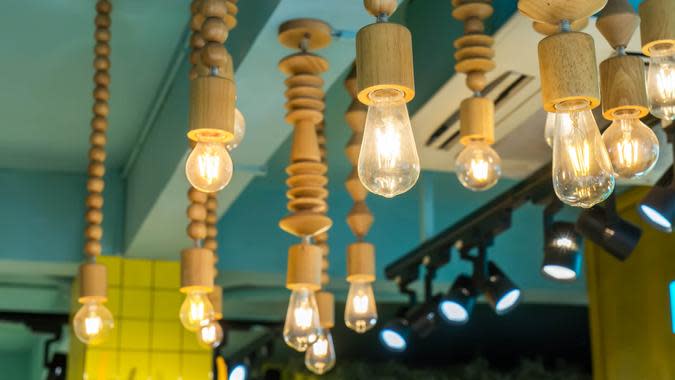
LED Light Bulbs
Haven't made the switch to LED light bulbs yet because they cost more than traditional incandescent bulbs? A study by the Consumer Federation of America found you're not actually saving any money by sticking with the less energy-efficient models. In fact, you're spending more.
Although LED bulbs cost more upfront, they last longer than incandescents and use less energy. The CFA study found that a household using at least 20 light bulbs could save $1,000 or more over 10 years by switching to LED bulbs.

Solar Panels
It can be expensive to install solar panels for your home. On average, a solar panel system costs nearly $17,430 to $23,870 after tax credits that help offset the cost, according to EnergySage, an online solar energy marketplace. However, these systems can pay for themselves over time, said Matt Edstrom, former chief marketing officer of GoodLife Home Loans. "Once you start seeing a healthy decrease in your utility bills, you'll realize how much more efficient these solutions are from both a financial and an eco-friendly viewpoint," Edstrom said.
If you generate your own energy with solar panels, your energy savings would offset the cost of the panels within 10 years. From then on, you could bank your savings.
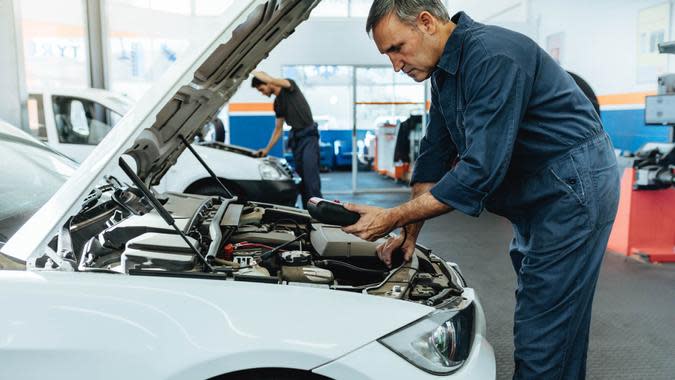
Prepurchase Car Inspection
Buying a used car is a great way to save money. But before you purchase a car that's been owned before, you should spend a little extra to have it inspected by a trusted mechanic, said Kelan Kline, co-founder of The Savvy Couple blog.
"One of the best things you can splurge your money on that has the potential of saving you thousands of dollars is paying a mechanic to look over a car before purchasing," Kline said. Expect to pay about $50 for an inspection. "It's a good practice to have as they can point out any major flaws that might cost you thousands to repair down the road."
$2,000 Quarter? Check Your Pockets Before You Use This 2004 Coin
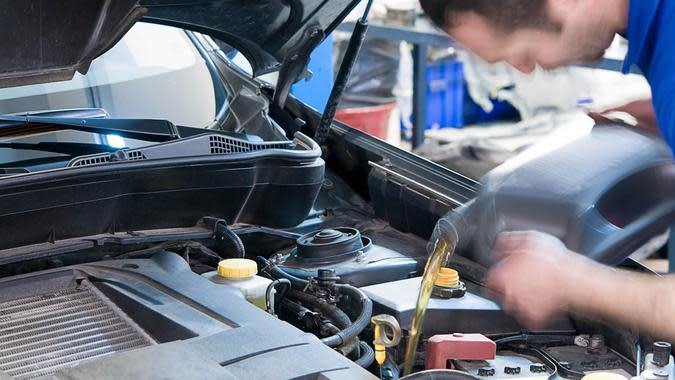
Regular Car Maintenance
Don't think of taking your car in every few months to get the oil or filters changed as a splurge. Instead, think of it as smart use of your money. "General car maintenance is definitely something to spend on to save you money in the long run," said Nicole Firebaugh, manager of PMR auto repair shop.
"An oil change every three months would take about 35 years to equal the cost of a cheaper engine replacement," Firebaugh said. "While over a long period an engine replacement will likely become inevitable, regular maintenance can mean the difference between that engine replacement being at 100,000 miles -- when the car is just out of warranty but likely not at an age that it is worth trading in with a blown motor -- or 300,000 miles, at which point the vehicle would have served its purpose and would likely be ready to be traded in."

Home Inspection
Don't skimp out and skip a home inspection to save a little money when buying a home. The average cost to have a professional check the condition of a property is $281 to $402, according to HomeAdvisor.
"It's always best to splurge on a good home inspection to make sure the systems and the components in the house are working properly and in good condition," Kline said. It can help you avoid sinking money into a house that is in need of costly repairs. Or it can help you negotiate a lower price if you know there are things that need to be fixed or replaced. For example, knowing that the roof is 25 years old and will need to replaced soon is a great bargaining chip to negotiate a lower purchase price, Kline said.

Home Warranty
Splurging on a home warranty can save you money when an appliance or system in your home breaks down and needs to be repaired or replaced. A home warranty costs an average of about $25 to $50 a month, but it can save you thousands of dollars, said Brian Greenberg, founder and CEO of True Blue Life Insurance.
For example, when Greenberg's water heater was leaking, he put in a request to his home warranty company to have it checked out. Greenberg had to pay $65 to the provider who contracted with the warranty company to make the visit but didn't have to pay any extra to have his water heater replaced. "I've saved over $10,000 by having our home warranty over the past seven years," he said. "The best part is that I don't have to worry about being overcharged or ripped off."
Find Out: 22 Side Gigs That Can Make You Richer Than a Full-Time Job

Reusable Safety Razor
Disposable razors might seem like a cheap way to shave. But you can save money over time by spending more initially for a reusable safety razor. "I was spending about $6 a month on disposable razors which adds up to $72 a year," said Alice Gerwat, a money-saving expert for Magic Freebies. "I bought a safety razor for just $20 and a box of blades for $12. So I spent $32 three years ago and still haven't used up my box of blades. The razor itself lasts forever, as its metal."

Heavy-Duty Backpack
If you're a parent and have to shell out big bucks every year for your kids' school supplies, you might be tempted to opt for an inexpensive backpack to save money. However, you'll be better off splurging on a heavy-duty backpack that will last for years, said Kathryn Mancewicz, a personal finance blogger at Money and Mountains.
"When I was in eighth grade, I actually convinced my mom that spending $70 on a Swiss Army backpack would be a better purchase in the long run," Mancewicz said. "I ended up having that exact same backpack all throughout high school, college, grad school, and my first year of work. So in total, it lasted me 12 years." Opting for a cheaper backpack for, say, $25, would likely have meant replacing it every year. Over 12 years, that would've been $300 spent rather than $70, she said.
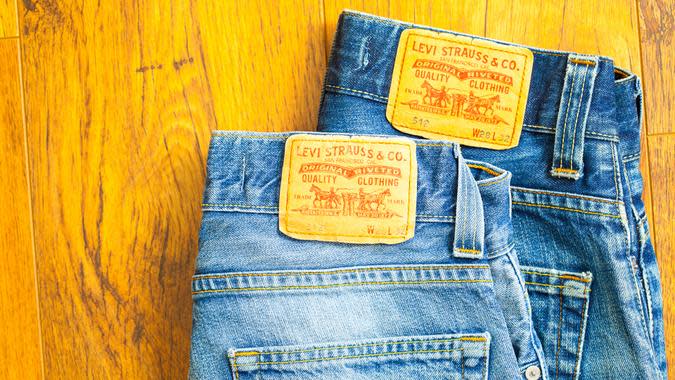
Wardrobe Staples
When buying basics for your wardrobe, spending more upfront for quality clothing you'll wear often can save you more than cheap apparel over the long run, said Dworetsky. "A quality pair of jeans will last you years, as opposed to a cheap pair that might start falling apart after a few washes," he said. "Spending more on certain areas of your wardrobe will ensure you look nice for years to come."
See: 6 Richest People in the World You've Never Heard of

Quality Kitchen Knives
Quality kitchen knives can cost a pretty penny -- $50 to $100 or more. But are they worth it? Yes, said Becky Beach, a money expert and creator of Mom Beach. "One of the best products are a good set of knives that come with a sharpener," she said. "This can save you so much money down the road since you won't have to keep replacing dull knives. It will help you to cook at home more often, saving even more money."

Premium Mattresses
With the proliferation of online, direct-to-consumer bedding companies over the last several years, mattresses have become more and more affordable, said Matthew Ross, co-owner of sleep and mattress review website The Slumber Yard. You can find some for as little as $200 to $300. But Ross said it's worth it to spend more on a mattress.
"The truth is that a lot of these budget beds are just made up of two or three layers of cheap poly foam," Ross said. They break down and form body impressions within a matter of months, leaving you no option but to buy another mattress.
"In the long run, it just ends up costing you more money because you have to purchase a new bed every two to three years -- not to mention sleeping on a cheap bed that sags can lead to back pain and other health issues," Ross said. Opt for a premium mattress with pocketed coils or an innerspring unit, which will last a decade. You can find one for $1,000 or less.
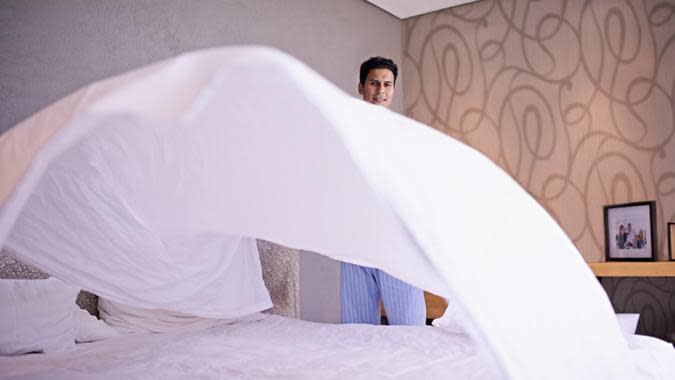
High-Quality Sheets
Is it worth it to shell out hundreds of dollars for sheets with thread counts of 600, 800 or 1,000? Not necessarily. In fact, a very high thread count could mean the manufacturer has used several thin threads twisted together rather than thicker, more durable single-ply threads that produce a lower thread count but can be of better quality.
It is worth it, though, to spend extra for sheets made with high-quality cotton, which can last up to five years. Cheaper sheets with low-grade cotton sometimes last only a few months because they unravel faster with each wash, according to Bedding Outlet.
More: 18 Legitimate Games & Apps That Pay Real Money in 2023

Rewards Credit Card With an Annual Fee
Paying an annual fee to have a credit card might seem like throwing money away -- and it can be if you don't get much in return for that fee. But in some cases, the annual fee -- even a high one -- can be worth it, said Jacob Dayan, CEO and co-founder of tax services company Community Tax.
"If you have to travel a lot for work or you're just a globetrotter by nature, travel reward cards can save you thousands of dollars," Dayan said. "A $400 annual fee might seem high, but the miles and hotel points that you can collect will earn that money back and then some. These premium cards often come with other perks such as waived bag fees and trip insurance that can save you even more money in the long run."

Life Insurance
Don't think of life insurance as a splurge. Think of it as a necessity if you have loved ones who rely on you for financial support. More than 40% of U.S. households would feel the financial impact of the loss of a primary breadwinner within six months, according to a study by LIMRA and Life Happens. Without a life insurance benefit payout to help cover costs, they might have to resort to debt and raid their savings to stay afloat.
You don't actually have to spend a lot to get ample coverage. A 30-year-old man who doesn't smoke and is in good health could get a 20-year term life insurance policy with a $500,000 benefit for a monthly premium of about $33 to $40, according to ValuePenguin. That's a relatively small price to pay to save your loved ones from feeling a financial pinch when you die.
More From GOBankingRates
This article originally appeared on GOBankingRates.com: 16 Random Things To Buy That Will Actually Save You Money in the Long Term
